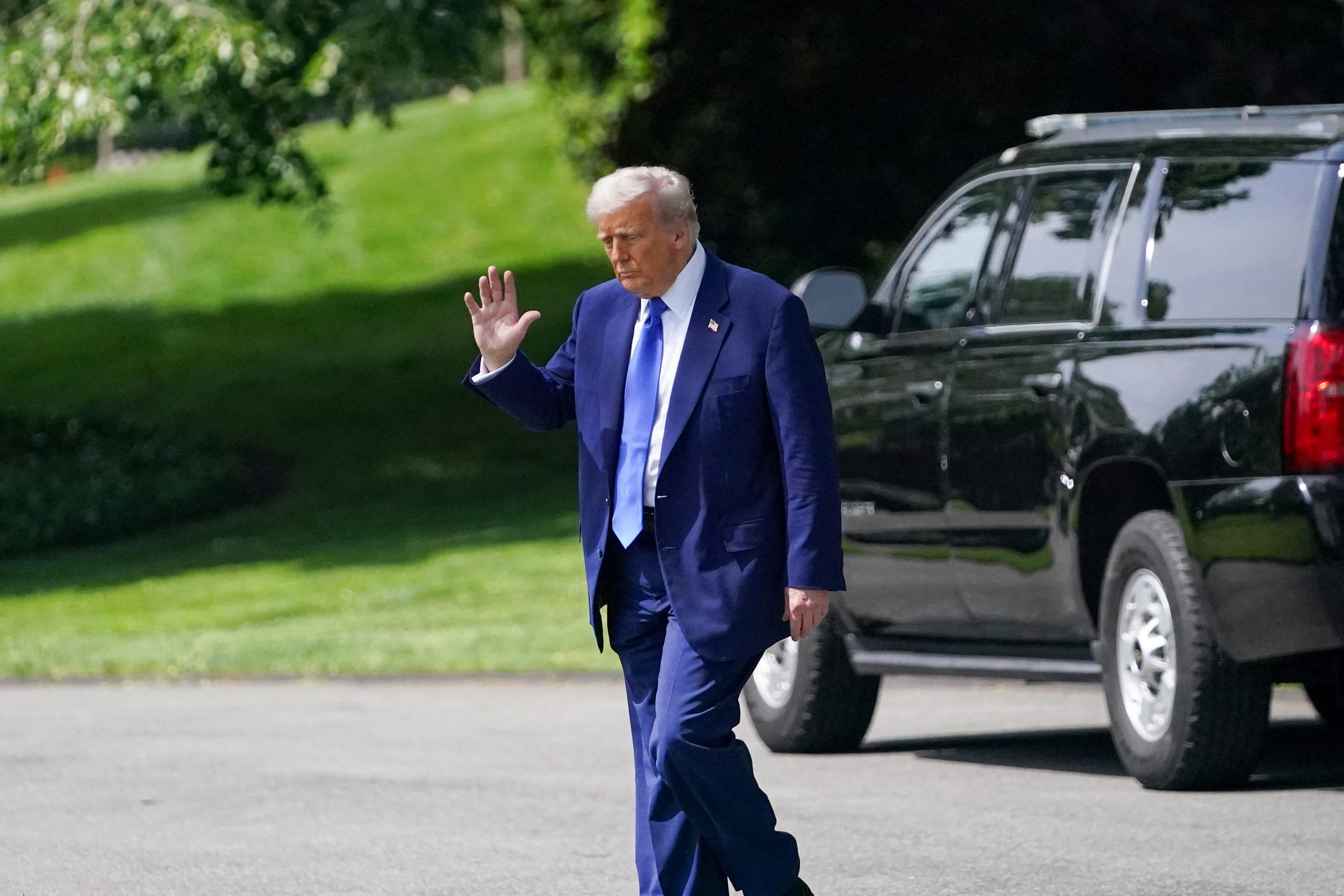2 min read
Trump to join House Republicans as his tax bill nears deadline
 Merit Street Media
|
May 20, 2025
Merit Street Media
|
May 20, 2025

WASHINGTON - U.S. President Donald Trump will join the congressional debate over his sweeping tax bill on Tuesday, as Republicans who control the House of Representatives struggle to keep their fragile majority together for a crucial vote later this week.
The president is due to attend a Tuesday morning meeting of the 220-member House Republican caucus, according to a White House official. The meeting will include hardline conservatives who stalled Trump's "one big beautiful bill" over the weekend, as well as Republicans from New York who hope to get his help raising a deduction cap for state and local taxes.
"We're going to have a lot of conversation amongst the conference over the next 48 hours," House Speaker Mike Johnson told reporters.
Some lawmakers have hoped for the president to weigh in on differences that could stand in the way of the legislation, believing that his powerful sway over the Republican Party can overcome divisions over spending, green tax credits and social safety net programs.
House and Senate Republicans have yet to reject any of Trump's legislative requests. But his call for Republicans to unite behind the bill last week fell on deaf ears when four hardliners blocked its progress in the House Budget Committee until the panel approved it late Sunday night.
"CONGRATULATIONS REPUBLICANS!!! MAKE AMERICA GREAT AGAIN!!!" Trump responded on his Truth Social media platform.
The drive to advance the legislation has continued after Moody's stripped the U.S. federal government of its top-tier credit rating, saying that multiple administrations and Congress had shown no political will to address the nation's growing $36.2 trillion debt pile. Trump's bill would add $3 trillion to $5 trillion to the debt, according to nonpartisan analysts.
Johnson, who has said that the Moody's downgrade demonstrates the need to enact the legislation, is pushing to pass the bill in the House before the May 26 U.S. Memorial Day holiday and send it on to the Senate.
The measure would extend Trump's 2017 tax cuts, his signature first-term legislative achievement, reduce taxes on some tips and overtime income, boost defense spending and provide more funds for his border and immigration crackdown.
"We're almost there, and I'm very optimistic we will find the right equilibrium point to get this bill delivered," Johnson told reporters.
The bill faces its next test at another unusually timed hearing set for 1 a.m. ET (0500 GMT) Wednesday, when the House Rules Committee weighs changes to the bill. Johnson's goal is to reach agreement on changes that the panel can adopt as a manager's amendment before sending it to the floor for a possible Thursday vote on passage.
REPUBLICANS EYE CUTS TO MEDICAID
But Republicans remained divided over major aspects of the bill, including cuts to Medicaid and limits on the deductibility of state and local taxes.
Republicans plan to use a parliamentary maneuver to bypass the objections of Senate Democrats and pass the bill on a party-line basis. Democrats have blasted the bill as disproportionately benefiting the wealthy while cutting needed services -- such as Medicaid -- to lower-income Americans.
Trump's Republicans hold a 220-213 majority in the House and are divided over how deeply to slash spending to offset the cost of the tax cuts.
Hardline conservatives continue to demand deep spending cuts to the Medicaid healthcare program for lower-income Americans and the full repeal of green energy tax credits, moves that are opposed by more moderate Republicans who say such changes will hurt working-class voters and farmers whose votes they will need in the 2026 midterm elections.
Spending cuts already proposed in the legislation would kick 8.6 million people off Medicaid, according to the nonpartisan Congressional Budget Office.
Republican lawmakers are considering implementing new work requirements for people enrolled in Medicaid, with their debate focused on when those should kick in, Republican leadership aides told reporters on Monday.
Republicans are also at odds over the deductibility of state and local taxes, or SALT, an issue of great significance to a handful of incumbents from states such as New York and California that are critical to the party's narrow House majority.
Copyright Reuters

